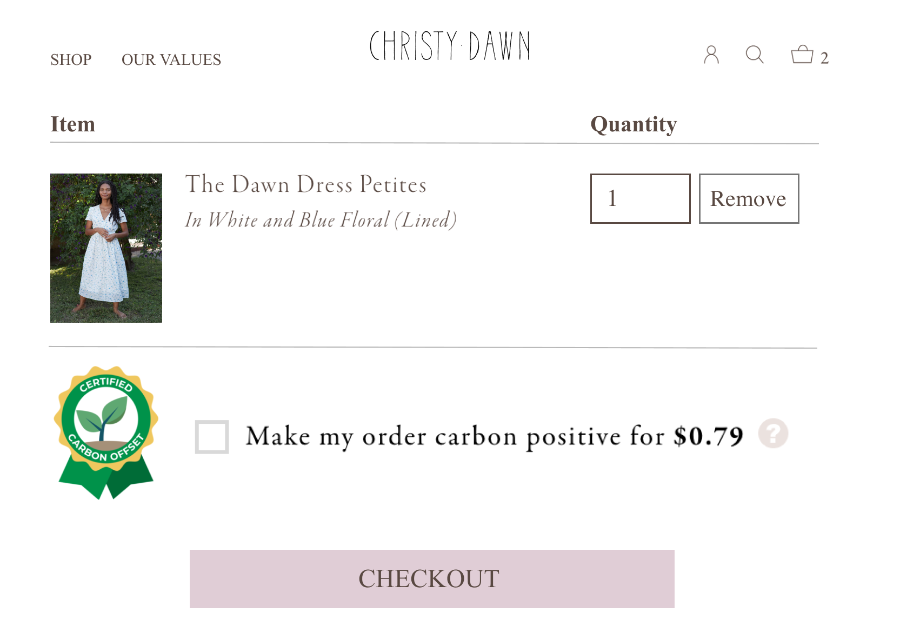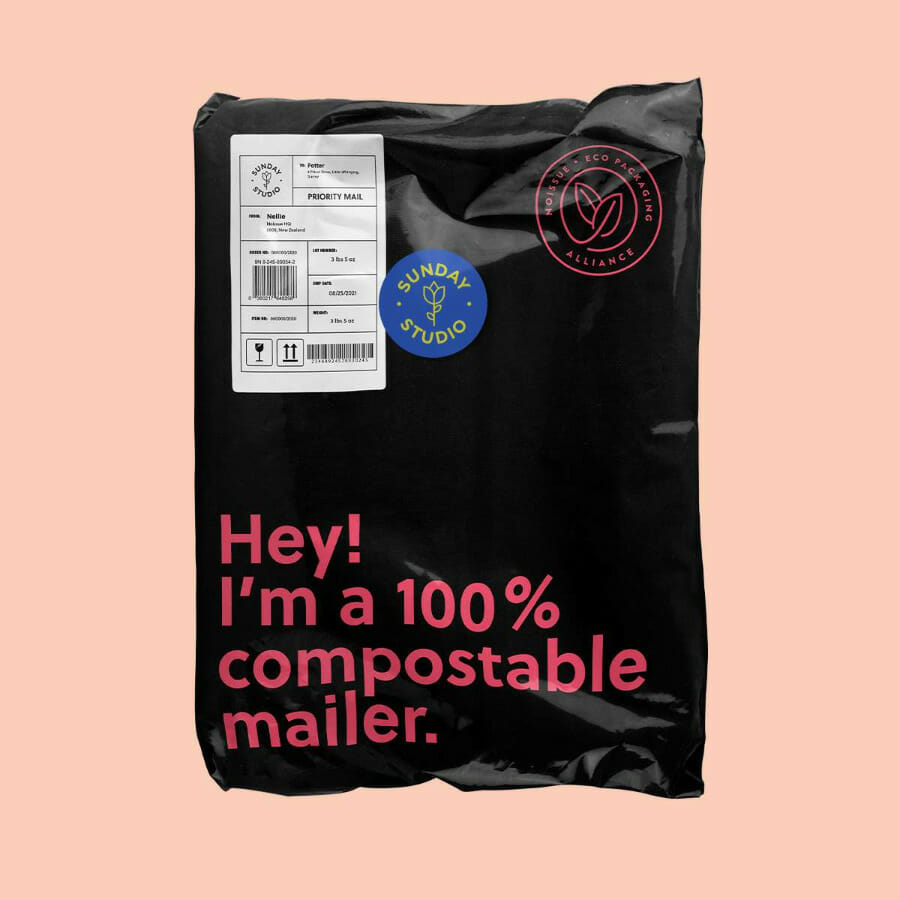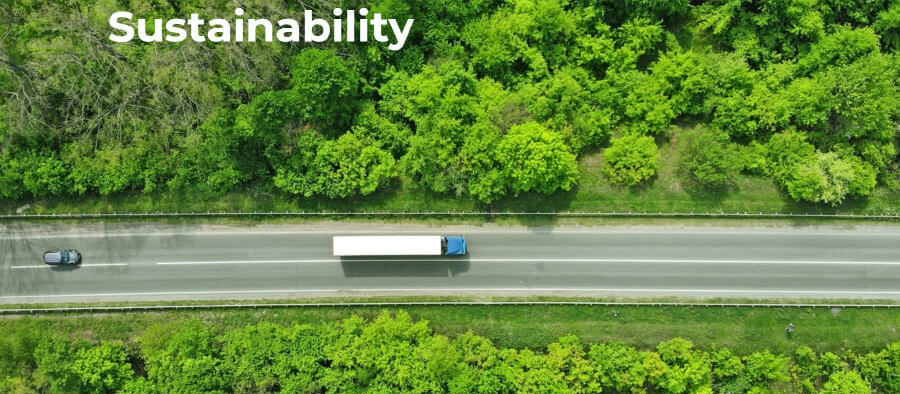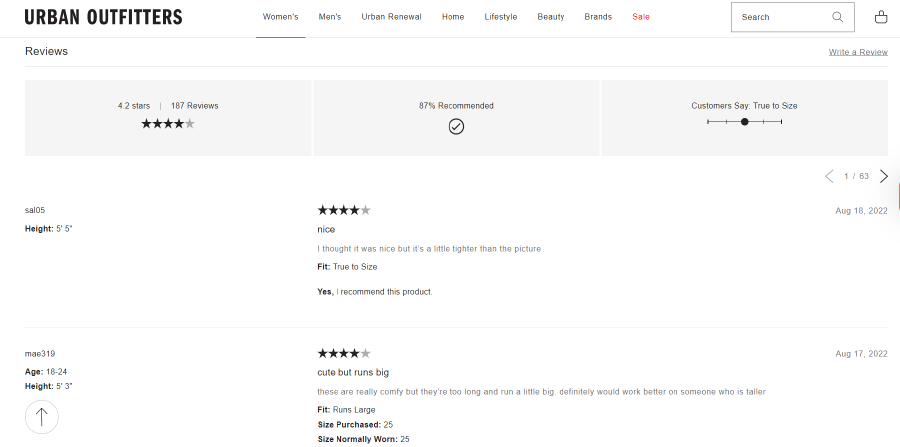Logistics
Warehousing & Fulfillment
Transportation
E-commerce
E-commerce Fulfillment Services
Lease & Maintenance
Semi Trucks
Supply Chain Technology
Logistics
E-commerce
Lease & Maintenance
Buy Used Trucks

Sustainability has become a buzzword for brands and customers alike, with everyday shoppers doing their best to make sustainable purchasing decisions while companies take action to reduce their environmental impact.
At first glance, it may seem like everyone believes they are working towards being more environmentally responsible. The thing is, what consumers (and companies) are saying about sustainability doesn't always add up.
Many customers are holding companies to higher standards and choosing sustainable retailers over ones who aren't actively pursuing eco-friendly practices. But the majority of shopping behavior begs to differ. As it turns out, there's a big gap between what consumers are saying about sustainability and what they are doing in practice.
Is there a cause for the discrepancy between thoughts and behavior at the consumer level? Can retailers keep their customers happy while also providing more sustainable shopping options?
In this post, we're going to take a quick dive into consumer demand, behavior, and where sustainability falls into the mix.
Consumers are showing a preference (and expectation) for retail companies to engage in social and environmental responsibility. What do they want to see? Tangible practices like energy efficiency in fleets and recyclable packaging to creating more sustainable products.
Practicing sustainable behaviors is difficult, especially when the retail industry doesn't set consumers up for success. With many customers wanting to see change and be a part of a larger sustainability initiative, their actions aren't always aligning.
It's clear that consumers want to be more eco-friendly and have sustainable retail options available to them. But they may be having some trouble acting upon their behavior. Why? The retail industry was not built with sustainability in mind.
A customer orders a small item, say, a pair of sunglasses. However, when the sunglasses arrive, they come in a 10-inch box, within a 12-inch box, stuffed to the brim with bubble wrap. When the customer finally gets to their sunglasses, they're in single-use plastic packaging. Suddenly, what was just one small item becomes a perfect recipe for excessive packaging and waste.
What's wrong with this picture? Well, for one, the brand could be using recycled materials for packaging. The consumer also has no say in how their package was delivered and put together. If there was some sort of option that included paying a small price for sustainable packaging, the consumer could take control of their experience while reducing their carbon footprint.
A customer makes their way to the check-out page and sees a few different shipping options. Same-day shipping is offered at no extra charge! That feels like a no-brainer, so this method is selected right away. Faster = better, right? In terms of sustainability, not quite.
Brands may be offering quick shipping methods to appease their customers. But without offering carbon neutral options to make up for the amount of energy spent on fast delivery, they're not actively reducing their environmental impact. Plus, customers might not realize the positive impact of waiting just a day or two more for delivery.
Companies are being more vocal about sustainability: is that enough?
The short answer? No.
Not only do consumers want to see more sustainability efforts. They also need help with how to participate. Companies should be providing viable opportunities for customers to save energy and reduce their carbon footprint in addition to their sustainable business initiatives.
What does this look like for retail companies?
For customers to actively participate in a company's sustainability strategy, they'll need action items provided along their shopping journey. Having the chance to make educated decisions will empower customers to choose their own path and come back again and again.

While it may never be feasible to completely eliminate the retail carbon footprint, there are ways to offset a negative impact. Retailers can partner with brands like EcoCart to calculate emissions created from the order and provide various donation options to fund certified carbon offset projects.
The results? A quick and easy option for customers to make their purchases carbon neutral before the order is even shipped.

Sourcing sustainable packaging from a brand like noissue, for example, is an incredibly effective (and easy!) eco-friendly practice. Instead of using plastic packaging, try a compostable mailer that will break down in a home or commercial compost or eco-friendly tissue paper rather than bubble wrap. Once your sustainable materials are in the hands of your e-commerce fulfillment provider, you won't have to think twice about it!

Partnering with a 3PL who operates with SmartWay certified fleets can help reduce a brand's carbon footprint. How? SmartWay requires its partners to adhere to strict guidelines concerning fuel efficiency and the transportation of goods as well as the toll the freight industry takes on air quality.
Unfortunately, returns are inevitable in e-commerce. But not all hope is lost. Something that all companies can do to reduce their returns is to get to the root of the problem. Why are your customers returning their purchases? Is the product damaged? Is the sizing an issue? Is your product imagery not up to scratch?
Popular apparel brand Urban Outfitters provides online shoppers with a quick overview of reviews, including a sizing review that lets them know how the product fits: "true to size," "runs small," or "runs large."

It's clear that consumers are saying they want to support sustainability in retail... so why don't the numbers add up?
In an age of instant gratification, where the customer experience rules all, it's easy for shoppers in-store and online alike to overlook the negative impact that their shopping behaviors can have. When free 2-day shipping is the first option presented at check-out, or 'free returns' is on every product page, this sets up certain standards of behavior that consumers often follow.
The real question is, how can retailers meet consumer demand while also developing a shopping journey that encourages education and action around climate change?
Spoiler alert: it's not easy, but it can be done with carbon neutral options, eco-conscious tips along the buying journey, and sustainable practices like recycled packaging, electric vehicles, and a more holistic approach to sustainability in retail.